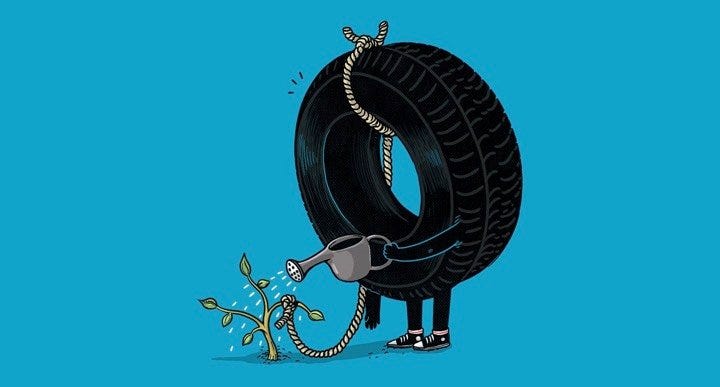
In the 1960s Stanford professor and psychologist Walter Mischel carried a study, which became known as the Stanford marshmallow experiment.
It went like so; children were offered a choice between having one small near-term reward provided immediately or waiting for two longer-term rewards if they waited for 15 minutes. During this time the tester left the subject in a room and then returned. The reward was usually a small marshmallow, cookie or pretzel.
The researchers later performed follow-up studies on the same children. They found an interesting trend. The children who were able to wait longer for the preferred rewards tended to fare better in life. This was measured by their SAT scores and other educational aspects as well as body mass index (BMI) and a series of other life measures.
Delayed Gratification
What Mischel was measuring is known as Delayed gratification. Delayed gratification concerns the ability to resist temptation for an immediate reward in order to attain a later and greater reward.
CEOs face the dilemma of short term gratification on a daily basis.
Why would you invest time, risk and effort in the long-term strategy of the company when you can please shareholders and your board of directors by making short-term gains and look like a hero?
Alas, so many companies create this environment themselves and their corporate incentive systems are built around short term gains. If your bonus is structured on Ebita for example, why would you ever invest ahead of revenue? Why would you invest in training your staff? Why would you invest in your future strategy?
Just exhaust the golden goose, keep farming the land without looking for pastures new and certainly without leaving it fallow. That means the CEO may make their bonus, but the company will fail in the (not so) long run.
The 10,000-year clock
Amazon’s visionary founder Jeff Bezos has a private project in which he has invested $42 million. Although it is a project of The Long Now foundation, Bezos is personally funding this project and it is being built on the side of a mountain on his land.
The project concerns a 10,000 year clock. The project aims to foster long-term thinking in the context of the next 10,000 years. In a world where life, business and society moves faster than ever before, we rarely take time to wake up and smell the coffee. This project aims to engender long-term thinking and long-term thinking awareness.
I love the following quote from the clocks founder Danny Mills
“I cannot imagine the future, but I care about it. I know I am a part of a story that starts long before I can remember and continues long beyond when anyone will remember me. I sense that I am alive at a time of important change, and I feel a responsibility to make sure that the change comes out well. I plant my acorns knowing that I will never live to harvest the oaks.” — Danny Mills
Bezos has always had a long term view and he expressed his feelings on the topic as follows:
“We humans have become so technologically sophisticated that in certain ways we’re dangerous to ourselves. It’s going to be increasingly important over time for humanity to take a longer-term view of its future.” — Jeff Bezos.
Amazon and Thinking Long
If you stand back and look at the amazing success that Amazon is, you have to admire the business leaders in Amazon. This started in Bezos’ garage and has grown into the behemoth that it is today. Bezos always had a long-term strategy and vision.
What is most admirable and smart about Bezos is that he has never stopped reinvesting in the long term, he has avoided the short term game of returning investment to stock holders, nor Wall Street every quarter. Instead, he has focussed on the future and with that, has insisted on huge investment in that future.
Bezos knows that if he starts returning dividends that Amazon investors will become addicted to the returns. If this happens, a pressure to make premature decisions will come with it.
Apart from the Amazon eco-system around e-commerce, think of the vision of the factory of the future, a fully automated factory run by drones and driven by data. Think of Amazon’s focus on the customer and their eye on a future logistics system. Amazon is currently building an “Uber/Hailo for trucking”, again with an eye on the long term (this is with an eye on driverless trucks of the future).
While most retailers are still grappling with e-commerce and digital transformation, Amazon are working in the future and waiting for the world to catch up.
Imagine that organisations even adopted a fraction of future orientated strategy. Most are driven by short-term goals, short-term thinking, but also short-term focus.
We are amidst an era of hyper-rapid change and constant disruption, of the Fortune 500 firms ranging from 1955 to 2015 only 12% remain and we are going to see a lot more sink in the coming years.
Innovation and long-term thinking is the only way forward.
On this week’s innovation show we talk to CEO and founders: Ron Immink of Bookbuzz, PJ Fitzpatrick of Educate4health, Andrew Keogh of Aristo and Eileen Byrne of Clanwilliam Health